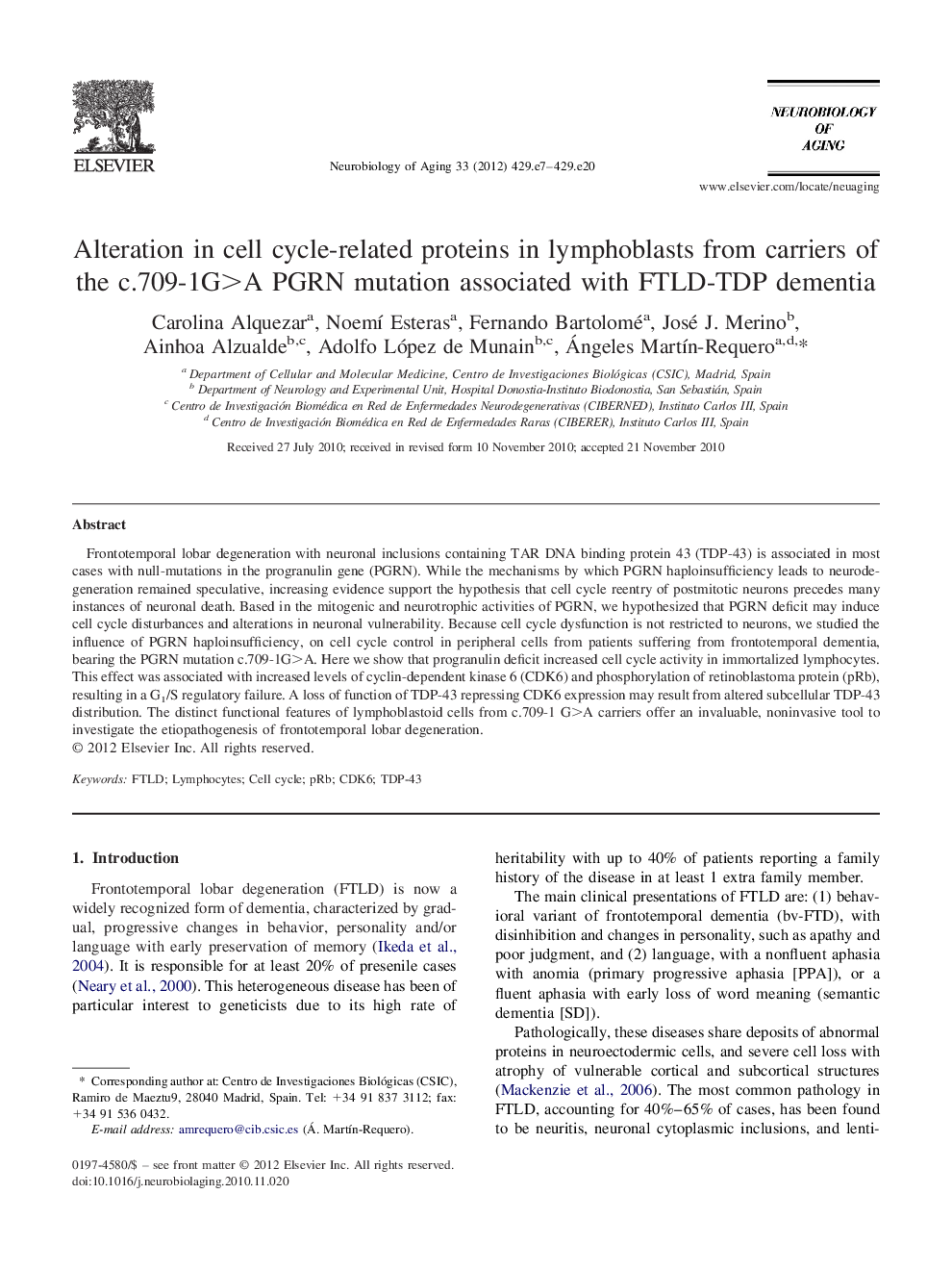| Article ID | Journal | Published Year | Pages | File Type |
|---|---|---|---|---|
| 6810005 | Neurobiology of Aging | 2012 | 14 Pages |
Abstract
Frontotemporal lobar degeneration with neuronal inclusions containing TAR DNA binding protein 43 (TDP-43) is associated in most cases with null-mutations in the progranulin gene (PGRN). While the mechanisms by which PGRN haploinsufficiency leads to neurodegeneration remained speculative, increasing evidence support the hypothesis that cell cycle reentry of postmitotic neurons precedes many instances of neuronal death. Based in the mitogenic and neurotrophic activities of PGRN, we hypothesized that PGRN deficit may induce cell cycle disturbances and alterations in neuronal vulnerability. Because cell cycle dysfunction is not restricted to neurons, we studied the influence of PGRN haploinsufficiency, on cell cycle control in peripheral cells from patients suffering from frontotemporal dementia, bearing the PGRN mutation c.709-1G>A. Here we show that progranulin deficit increased cell cycle activity in immortalized lymphocytes. This effect was associated with increased levels of cyclin-dependent kinase 6 (CDK6) and phosphorylation of retinoblastoma protein (pRb), resulting in a G1/S regulatory failure. A loss of function of TDP-43 repressing CDK6 expression may result from altered subcellular TDP-43 distribution. The distinct functional features of lymphoblastoid cells from c.709-1 G>A carriers offer an invaluable, noninvasive tool to investigate the etiopathogenesis of frontotemporal lobar degeneration.
Related Topics
Life Sciences
Biochemistry, Genetics and Molecular Biology
Ageing
Authors
Carolina Alquezar, Noemà Esteras, Fernando Bartolomé, José J. Merino, Ainhoa Alzualde, Adolfo López de Munain, Ángeles MartÃn-Requero,
